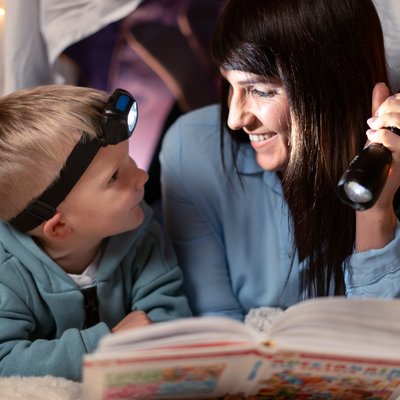This guide explores various storytelling techniques, writing skills, and grammar essentials to enhance your creative expression. Whether you're a novice seeking a solid foundation or an experienced writer eager to refine your craft, this guide is a valuable resource to unleash your imagination and storytelling potential.
Would a General Creative Writing Guide Suit You?
Are you wondering if a general creative writing guide is the right fit for you? Absolutely! This guide caters to a diverse audience, providing insights for beginners seeking a robust starting point and experienced writers looking to explore new avenues.
The aim is to foster creativity and help writers hone their skills through English for creative writing.
For novice writers, a general creative writing guide serves as an entry point into the world of storytelling. It covers fundamental concepts, helping you understand the different aspects of creative writing, such as character development, plot structure, and creating vivid settings. Additionally, it offers practical exercises to stimulate your imagination and encourage you to put pen to paper.
Experienced writers, on the other hand, can benefit from exploring new techniques and perspectives offered by a general creative writing guide. It can serve as a source of inspiration, revitalizing their writing practice and pushing the boundaries of their creativity. Often, established writers can get stuck in familiar patterns, and a fresh perspective can be just what they need to reignite their passion for storytelling.

Different Ways to Tell Stories
Storytelling lies at the heart of creative writing, and there are countless ways to captivate readers with your narratives. In this section, we delve into various storytelling techniques that fuel creativity:
- Linear Narratives: The traditional method of storytelling, following events in chronological order, providing a clear and engaging structure. Linear narratives are often the easiest for readers to follow and can be a great starting point for beginner writers.
- Flash Fiction: Master the art of brevity by crafting impactful stories in limited word count, captivating readers with concise yet powerful narratives. Flash fiction challenges writers to distill their ideas into a short but compelling story, making every word count.
- Epistolary Writing: Immerse readers in a character's world through letters, emails, or diary entries, offering unique perspectives and emotional depth. This format allows writers to explore the character's inner thoughts and feelings in a more intimate way.
- Stream of Consciousness: Dive into a character's thoughts and emotions, allowing a free flow of ideas to create intimate connections with the readers. Stream of consciousness writing can be experimental and offers an unfiltered look into a character's mind.
- Poetic Prose: Weave poetic elements into prose, infusing language with vivid imagery and evoking emotions in readers. Poetic prose adds beauty and depth to the writing, creating an immersive reading experience.
Each storytelling technique offers its own set of challenges and rewards, allowing writers to experiment with different styles and find their unique voice.

Creative Writing Guide English: General Writing Skills
To bring your creative ideas to life, mastering foundational writing skills is essential. This section emphasizes the importance of honing:
- Punctuation: Explore the correct use of punctuation marks, such as commas, semicolons, and dashes, to enhance clarity and rhythm within sentences. Punctuation plays a crucial role in conveying the intended meaning and tone of the writing.
- Sentence Structure: Craft sentences with varied structures to maintain reader interest, ensuring smooth transitions between ideas. Sentence variety adds depth and complexity to the writing, keeping readers engaged.
- Paragraphing: Organize your thoughts coherently into paragraphs, allowing for a logical flow of ideas and creating an enjoyable reading experience. Well-structured paragraphs help maintain the focus of the narrative and provide a visual break for the reader.
Understanding and implementing these writing skills not only improves the quality of your creative writing but also carries over to other forms of writing, such as essays, articles, and reports.
Creative Writing Guide English: General Grammar and Vocabulary
Grammar and vocabulary are the pillars of language and storytelling. In this section, we delve into:
- Grammar Essentials: A comprehensive review of crucial grammar rules, from verb tenses to subject-verb agreement, to ensure precise and effective expression. Proper grammar ensures clarity and coherence in your writing.
- Expanding Vocabulary: Learn techniques to enrich your lexicon, employing powerful words that evoke emotions and add depth to your writing. A rich vocabulary allows you to choose the perfect words to convey your ideas and emotions accurately.
Expanding your vocabulary goes beyond memorizing words; it involves understanding their nuances and appropriate usage. A vast vocabulary empowers writers to paint vivid pictures with words and create a lasting impact on readers.

Books for ESL Students: Enhancing Creativity in English
For ESL students, embarking on the creative writing journey in English can be both challenging and rewarding. This section offers a curated list of books tailored to ESL learners, providing exercises, tips, and valuable insights to enhance their writing abilities.
- "The Elements of Style" by William Strunk Jr. and E.B. White: This classic guidebook covers essential grammar and style rules, offering concise and practical advice for ESL learners to improve their writing.
- "On Writing: A Memoir of the Craft" by Stephen King: A master storyteller, Stephen King shares personal anecdotes and valuable writing tips, inspiring ESL writers to find their voice and overcome writing obstacles.
- "Writing Down the Bones" by Natalie Goldberg: This book encourages writers to embrace free-flowing writing, allowing creativity to flourish. ESL learners can benefit from the liberating approach to express themselves in English.
- "Bird by Bird" by Anne Lamott: Anne Lamott's humorous and insightful guide to writing provides encouragement and guidance for ESL students navigating the world of creative writing in English.
- "Writing Tools: 55 Essential Strategies for Every Writer" by Roy Peter Clark: This comprehensive guide offers practical techniques to strengthen writing skills and elevate storytelling for ESL learners.
By exploring these recommended books, ESL students can gain confidence in their English writing abilities and develop their unique voice in the world of creative writing.

Grow as a Writer: Nurturing Creativity and Skill
Writing is an ever-evolving process that requires consistent effort and exploration. In this final section, we explore essential aspects of nurturing your growth as a writer:
- Embracing Criticism: Learn to embrace constructive criticism as a valuable tool for refining your craft and gaining new perspectives. Constructive feedback can help you identify areas of improvement and push you to reach new heights in your writing.
- Consistent Writing Practice: Establish a writing routine to maintain productivity and strengthen your writing prowess through regular practice. Writing regularly hones your skills and allows you to experiment with new ideas.
- Experimentation and Exploration: Dare to venture into new genres, styles, and themes to expand your creative horizons and push the boundaries of your writing. Trying different forms of writing can spark fresh inspiration and keep your creativity flowing.
- Joining Writing Communities: Engage with other writers in workshops, online forums, or writing groups to share ideas, receive feedback, and stay motivated. Writing communities provide valuable support and encouragement for your creative endeavors.
- Reading Widely: Expose yourself to a diverse range of literature and genres to broaden your literary perspective. Reading widely allows you to learn from other writers' styles and techniques, inspiring your own creative pursuits.
Creative writing is a transformative journey of self-expression and storytelling with endless possibilities in the realm of English. Various storytelling techniques equip you with a wealth of tools to craft captivating stories and discover your unique voice.




